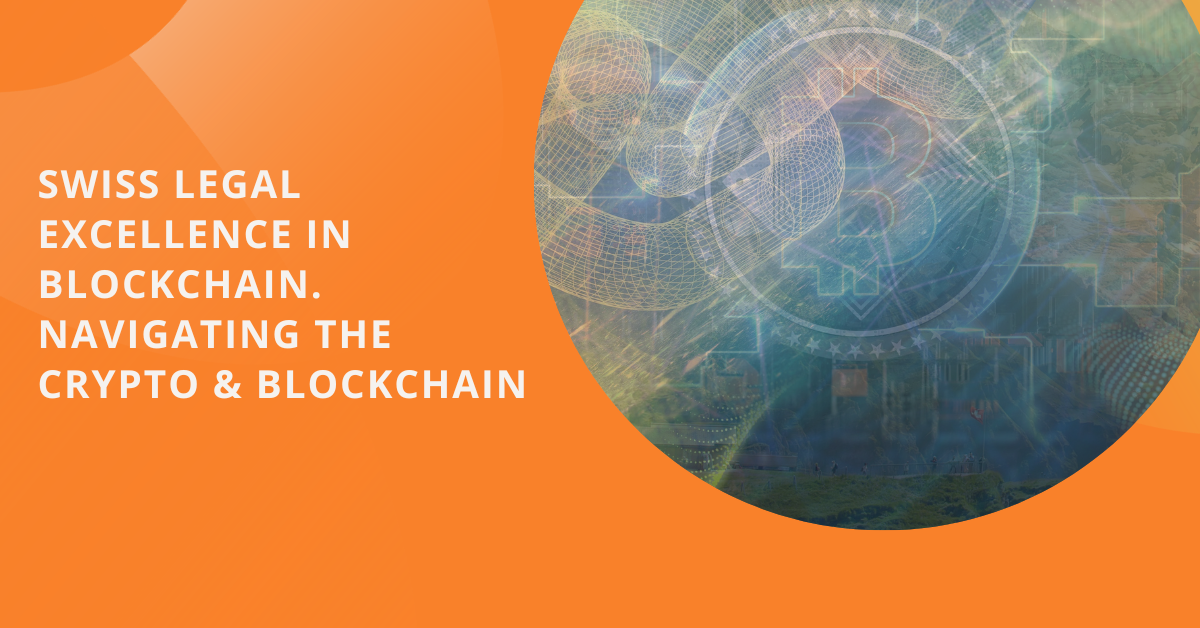Swiss Legal Excellence in Blockchain. Navigating the Crypto & Blockchain

In the rapidly evolving world of financial technology, the distinction between cryptocurrencies and blockchain technology remains of paramount importance. As the blockchain ecosystem continues to mature, it is essential for businesses and investors to grasp the nuances of these two domains. In this article, we will explore the significance of understanding the separation between the application of blockchain in businesses and the world of crypto exchanges and trading, emphasizing the necessity of a robust legal framework for blockchain adoption. Moreover, we will shed light on Switzerland, a country that has established itself as a pioneer in providing a conducive environment for blockchain businesses, with an emphasis on the most recent developments.
The Crypto and Blockchain Dichotomy
The distinction between cryptocurrencies and blockchain technology remains as relevant as ever. While cryptocurrencies like Bitcoin and Ethereum continue to dominate headlines, blockchain technology underpins a wide range of applications beyond digital currencies. Blockchain enables secure, transparent, and decentralized record-keeping, making it a transformative force for various industries. It empowers businesses to streamline operations, enhance security, and create innovative solutions, such as smart contracts and digital identity verification.
The World of Crypto Exchanges and Trading
Crypto exchanges have evolved significantly. They remain integral components of the digital economy, allowing users to buy, sell, and trade cryptocurrencies. However, the landscape is continually adapting. Traditional centralized exchanges (CEXs) and decentralized exchanges (DEXs) continue to coexist, with DEXs gaining ground due to their peer-to-peer, trustless nature.
Security and regulatory concerns remain crucial aspects of the crypto exchange and trading space. High-profile hacks and increased regulatory scrutiny have highlighted the need for stringent cybersecurity measures and adherence to anti-money laundering (AML) and know your customer (KYC) practices. Switzerland, renowned for its rigorous financial regulations, continues to set the standard for ensuring the security and transparency of crypto exchanges.
The Legal Framework for Blockchain Adoption
As blockchain technology expands its influence into diverse industries, the need for a proper legal framework has not waned. Legal clarity remains vital to provide businesses with the confidence to explore blockchain applications and investment opportunities while ensuring consumer protection and preventing illicit activities.
Switzerland remains at the forefront of establishing a conducive legal framework for blockchain businesses. The Swiss government's proactive approach to regulation and its development of clear guidelines for Initial Coin Offerings (ICOs) and tokenization make it easier for blockchain projects to navigate the regulatory landscape. Switzerland's regulatory framework prioritizes investor protection, AML compliance, and KYC practices, fostering a trustworthy and secure environment for blockchain innovation.
Switzerland: The Ideal Hub for Blockchain Businesses
Switzerland's reputation as a favorable destination for blockchain enterprises is undiminished. Its strategic location in the heart of Europe, coupled with a robust legal framework, continues to attract blockchain startups and established businesses. Political stability and the rule of law provide a secure foundation for blockchain companies seeking a predictable and supportive environment. The well-established financial sector offers businesses access to a vast pool of skilled professionals and potential investors.
Switzerland's neutrality and openness to international collaboration make it an ideal location for blockchain projects with a global scope. The country's legal framework and commitment to data privacy remain consistent with the principles of blockchain technology, emphasizing transparency and security.





